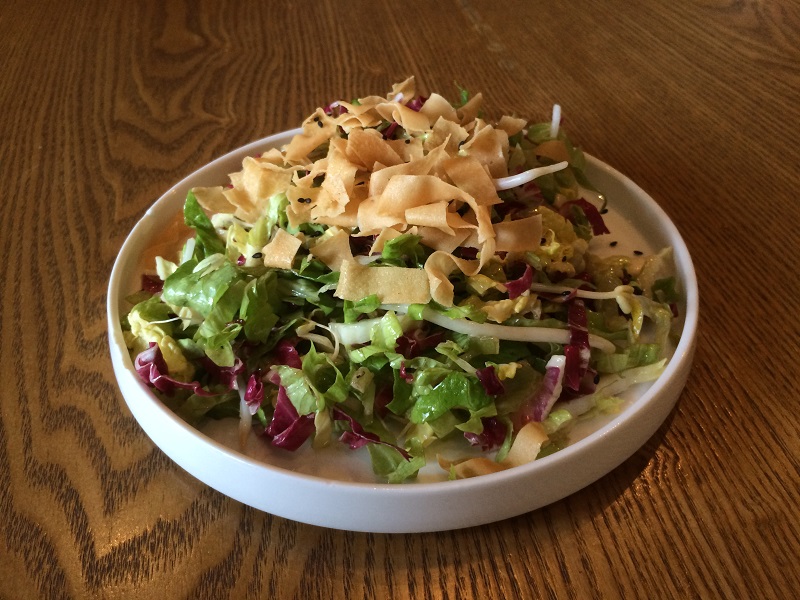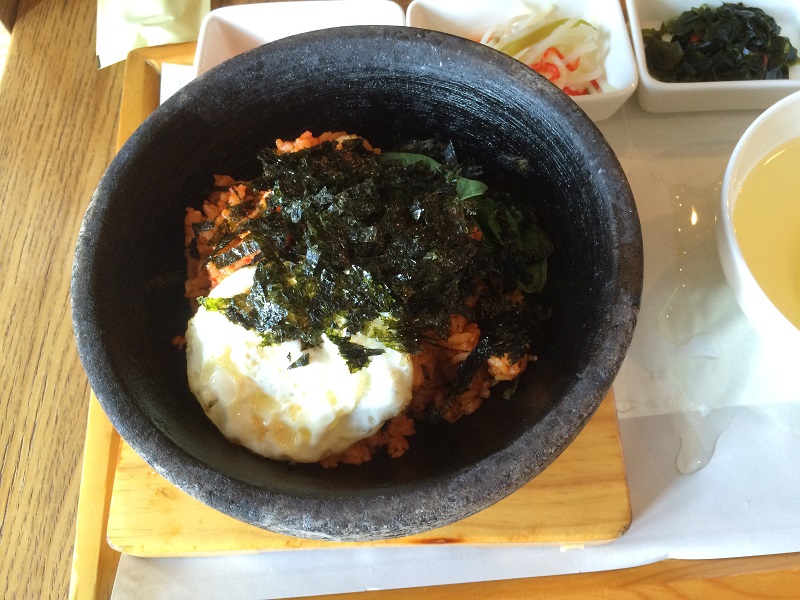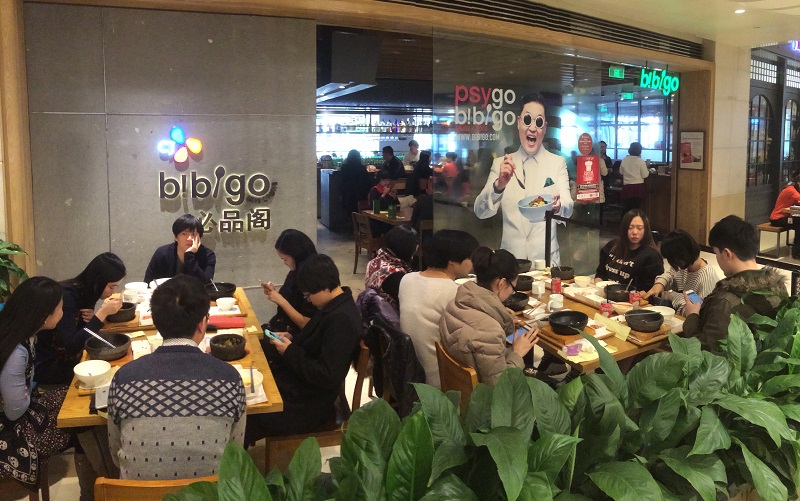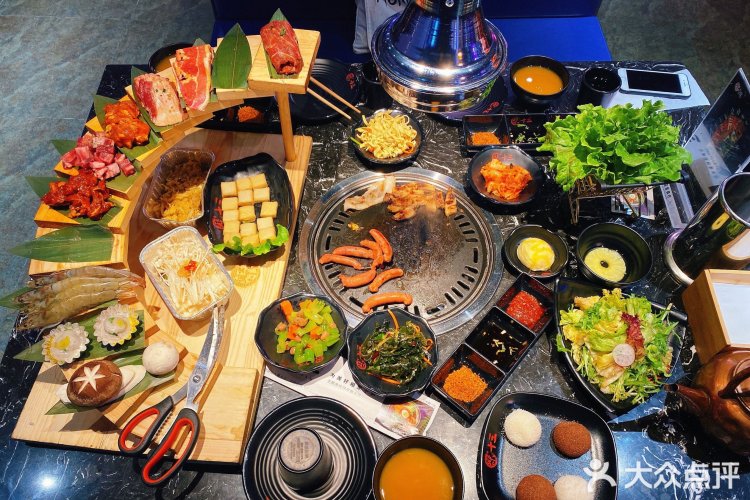Bibigo: Kimchi, K-pop, and in the Running for Best Korean
Beijing is nuts for Korean pop culture, and this goes well beyond the ability to break into a spontaneous horse trot upon hearing “Gangnam Style”. No, be it pop music, soap operas, fashion, and even cuisine, Beijing is obsessed by the contemporary culture of its relatively tiny northeastern neighbor.
No venue quite captures contemporary Korean the way Bibigo does. The South Korean chain with locations around the world brightens up Korea’s rather staid meat-and-kimchi standards with a full-on pop culture treatment and a hint of fusion to keep it contemporary.
Bibigo has been nominated twice in this year’s Reader Restaurant Awards (voting is open through March 8 – vote here), for Best Korean and Best Overseas Import.
The fully trilingual (English, Chinese, Korean) menu is a breeze to navigate even if you are unfamiliar with Korean food, thanks to clear pictures and stellar translations.
Alongside its vast selection of carnivorous fare, from its BBQ platter (RMB 178) to its Hot Stone Grilled Beef Bibimbap (RMB 70) and battered Gangnam Chicken (RMB 58), it also has options for the vegetable-loving set.
After arriving at the chain’s China World location (one of five in Beijing) for lunch, I started with a Korean Chopped Salad (RMB 38). The dish was ready in an instant, leaving me worried that I might have been handed something that had been sitting in the fridge, pre-made, for a week.

Those fears were misplaced – the salad featured feather-light lettuce that was crispy fresh, a smattering of crushed nuts and fried spring roll chunks gave it an added crunch. The salad was bound together with dressing light enough to prevent the greens from getting saturated (an all-too-common issue in many Beijing eateries). My only complaint: the menu promised “assorted vegetables,” but the salad I received was limited to leafy greens.
A better choice would have been the Bibigo Salad (RMB 55), which features a far more eclectic mix of spinach, lettuce, apple, walnut, chicken breast, and deep fried rice patties in a citron sauce dressing
Most interesting of all would be the Acorn Jelly Salad (RMB 55), in which greens are piled atop a plateau of firm acorn jelly slices, a traditional Korean delicacy.
Bibigo proves to be far more generous with its hot stone rice dishes, a Korean standard. Served in a stone bowl too hot to touch, they come in multiple varieties, including beef bibimbap, tofu bibimbap and bulgogi.

I tried the Chicken Kimchi Fried Rice, and was delighted by its fluffy fried egg. I broke the egg into fine pieces and mixed it with the bowl’s other sizzling ingredients, as is customary, and found myself gobbling up each spoonful ravenously. My appetite was stoked by the kimchi that laces the dish, giving it a tart flavor that doesn’t edge into sourness. The chicken was a little skimpy, but the egg, kimchi and sprinkles of salty seaweed gave my palate more than enough to contend with.
Bibigo also offers several intriguing beverages to wash this grub down – from Chrysanthemum Pear Tea (RMB 22) to the intriguing Pomelo Mojito (RMB 38). The restaurant also offers several creative desert options, including the Bibigo ice cream (RMB 35, which is laced with bean powder and crispy rice), a mango parfait (RMB 35) and a gelato-topped Korean pancake (RMB 38), which is finished with a sprinkle of brown sugar.
Bibigo’s chic decor – from its woodgrain furnishing, minimalist black metal trimming around nearly every surface, and spacious entryway – seals the deal. The snazzy aesthetic, the clean interiors, the quality service and the slick marketing combine with the wholesome cuisine to make Bibigo worth a trip. Oppan!
Photos: Kyle Mullin



